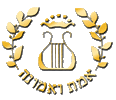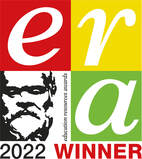Media StudiesScreening 2: The Now Show
A level: Board - OCR
In the first year the initial focus is on building the knowledge to understand how media institutions work to create products that meet the needs of specific target audiences. You will also build on essential practical skills in media production, such as photography (including editing using Photoshop) and graphic design (using Illustrator.) Alongside this you will find out about the research process involved in creating a media product and prepare to produce some individual products of your own.
In the second year you will explore advertising, creating a campaign of your own. You will also create ideas for a product, pitching your idea to gain feedback. Overall, the Media course is an enjoyable introduction to the world of media, with plenty to do and clear goals. There will be two exams and coursework over the two years. There will be clear guidance and deadlines throughout the course to support you. If you keep up and stay on track you will find this a really rewarding and interesting course which gets you a worthwhile qualification. For further details about assessment, the status of the qualification and the detailed course content please read the following information! Frequently Asked QuestionsWhat are Cambridge Technicals Level 3 ?
Cambridge Technicals are vocational qualifications at Level 3 that have been developed on the Qualifications and Credit Framework (QCF). This new generation of vocational qualifications has been developed and redefined to be aimed specifically at students aged 16+ and to be more relevant to industry. Why Cambridge ? Cambridge Technicals have been developed by building on OCR’s link with the University of Cambridge and its reputation for offering creative and inspiring vocational qualifications. Cambridge Technicals have a clear, practical and sensible approach to assessment. OCR offers students an exciting, inspiring and challenging qualification created to develop transferable skills that are essential in the workplace or for further study. Why Media? The creative industries are an important growth area in the UK, bringing significant cultural and economic benefits. The Level 3 Cambridge Technicals in Media offers a wide range of units to reflect the range of opportunities available within the Media sector. It is an ideal foundation for students, providing an understanding of Media through engagement with media products, production process and technologies. This leads to the application of practical and creative skills that transfer easily into the workplace. How do Cambridge Technicals compare in size with A Levels ? The Level 3 Cambridge Technical Introductory Diploma has the same number of guided learning hours (GLH) as an A Level – 360 GLH – and also has UCAS points. The Distinction* in the Cambridge Technical Extended Certificate has the same number of UCAS points as an A* at A Level, and a Pass has the same number of UCAS points as an E grade. What is the highest grade available for Cambridge Technicals students ? The highest grade that students can get for Cambridge Technicals is a Distinction*, which in terms of UCAS points is equivalent to an A* at A Level. Every unit is graded Pass, Merit and Distinction and students will get points per unit depending on the unit level, the grade achieved and the credit size of the unit. Grading – How are the units and the overall qualification graded ? There are two exams (units) which are externally assessed. The remainder units, once successfully moderated, will be graded using Pass, Merit or Distinction. The overall qualification is graded with Pass, Merit, Distinction and Distinction* by the aggregation of points gained through the successful achievement of individual units. WHAT ARE THE DIFFERENT UNITS? Media Products and Audiences (COMPULSORY UNIT) Exam The aim of this unit is for you to develop your understanding of how different media institutions operate in order to create products that will appeal to specific target audiences. You will therefore learn about the different ownership models in the media industries, and you will learn how to analyse different media products within the sector to understand the fundamentals of how meaning is created for audiences. You will learn about how audiences are categorised, researched and targeted by media producers and how media institutions distribute and advertise their products to audiences. Pre-Production and Planning (COMPULSORY UNIT) Exam By completing this unit, you will understand the pre-production process the creative media industry follows when creating a product. You will learn how to carry out research in the planning stage of a media production and about the various acts of legislation that need to be considered. You will learn about the constraints that need to be considered when planning a new media production, including timescales and resources. You will understand how to create pre-production documents in relation to client requirements and how to plan projects to meet these needs Create a media product (COMPULSORY UNIT) Media products have a range of different purposes. Whether it is to advertise and promote a product or service, inform an audience of a cause or engage and entertain an audience. The aim of this unit is for you to develop knowledge and understanding of the production processes of producing a media product, possibly a magazine. You will apply your learning gained in Units 1 and 2 to plan and produce a media product. You will complete planning materials to take them forward in the production and post–production stages of your intended media product. You will plan, produce and edit original content for your magazine. This will involve writing an article, creating your own graphics and taking your own photographs to go in your magazine. Other possible units:
EventsBBC Schools News Report LinkClick here to see photos from our Key 103 trip.
|


